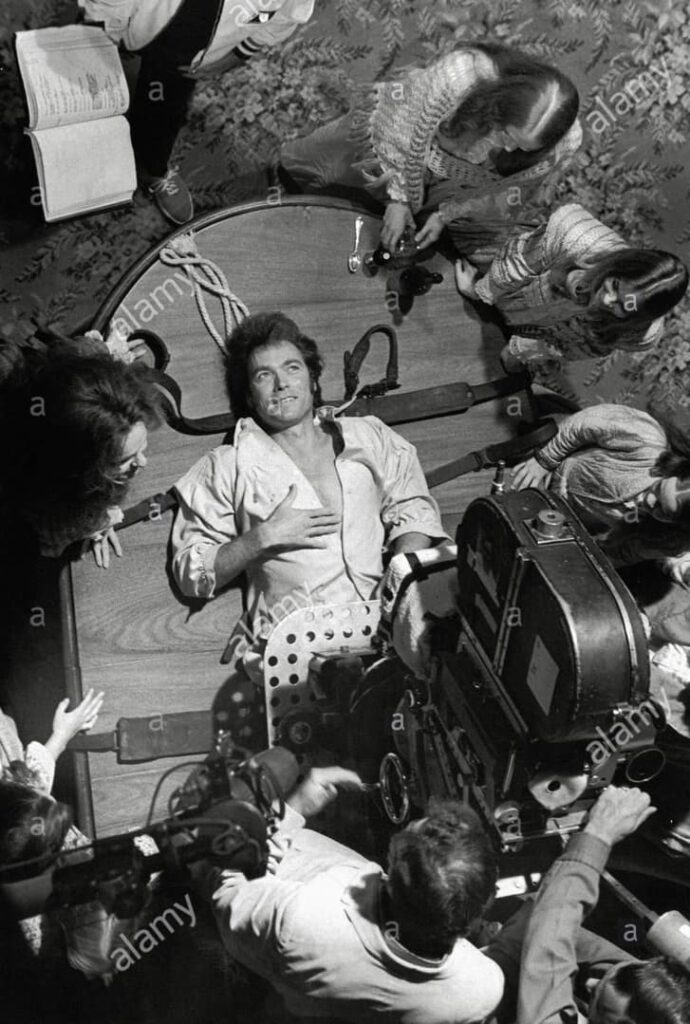
A Timeless Ode to Regret and Redemption
Ah, Clint Eastwood‘s “Gran Torino (Original Theme Song From The Motion Picture)”. Just the title itself conjures images, doesn’t it? For many of us of a certain age, it’s more than just a song; it’s a profound echo of a simpler time, a poignant reminder of choices made and paths taken. Released in 2008 as the theme for Eastwood’s powerful film of the same name, this haunting ballad, performed by Eastwood himself, didn’t climb the mainstream charts in the way a pop anthem might. It wasn’t a Billboard Hot 100 smash, nor did it dominate radio waves. And yet, its impact, its resonance, is arguably far deeper and more enduring than many of those fleeting hits. It found its home on specialized film soundtrack charts and, more importantly, in the hearts and minds of those who connected with the film’s raw, unflinching narrative.
The story behind this song is intrinsically woven with the fabric of the film itself, a true testament to Clint Eastwood‘s singular vision. He didn’t just direct Gran Torino; he inhabited its central character, Walt Kowalski, a grizzled, bigoted Korean War veteran grappling with a changing neighborhood and his own deeply ingrained prejudices. The decision for Eastwood to sing the theme song was a stroke of genius, adding an unparalleled layer of authenticity and vulnerability to the film’s conclusion. It wasn’t about vocal perfection; it was about conveying the weary soul of a man coming to terms with his past, seeking a sliver of redemption in his twilight years. The lyrics, penned by Jamie Cullum and Kyle Eastwood (Clint’s son), beautifully encapsulate Walt’s journey, his regrets, and ultimately, his final, selfless act.
The meaning of “Gran Torino” is multifaceted, a rich tapestry of themes that speak to the human condition. At its core, it’s a lament, a mournful reflection on a life lived with anger and isolation. Walt, as the song suggests through its melancholic melody and introspective lyrics, carries the weight of past actions, perhaps even atrocities committed during wartime, that have hardened his heart. But it’s also a song about change, about the slow, painful process of thawing a frozen soul. Through his unlikely connection with his Hmong neighbors, particularly the young Thao, Walt begins to confront his own biases and finds a purpose beyond his self-imposed solitude. The song becomes an elegy not just for Walt’s own life, but for a fading generation, a contemplation of legacy and the hope, however slim, for forgiveness and understanding. It’s a bittersweet farewell, a poignant acknowledgment of the end of one journey and the quiet, hopeful beginning of another, albeit one he won’t personally experience.
Beyond its immediate cinematic context, the song taps into universal feelings that resonate particularly with older listeners. We’ve all looked back on our lives, haven’t we? Reflected on roads not taken, words left unsaid, and the gradual accumulation of experiences that shape who we become. “Gran Torino” stirs those memories, not with harsh judgment, but with a gentle, almost empathetic understanding. It reminds us that even in our later years, there’s still the potential for growth, for connection, and for finding peace, however elusive it may seem. The simplicity of the melody, the raw, unpolished quality of Eastwood’s voice – it all contributes to a sense of unvarnished truth, a comfort in its very vulnerability. It’s a song that settles into your bones, a quiet, contemplative companion that lingers long after the final notes fade, leaving you with a lingering sense of melancholy, yet also a profound appreciation for the enduring power of humanity. For those of us who have seen a few decades pass, this song isn’t just background music; it’s a mirror, reflecting our own journey through life’s complexities, regrets, and the enduring search for meaning.
Video